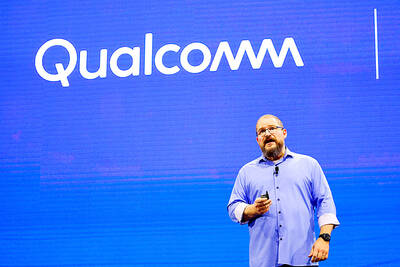Taiwan placed in the top position in a rating on the state of cluster development, part of various ratings assembled by the World Economic Forum (WEF) for its 2007 to 2008 global competitiveness report, Council for Economic Planning and Development (CEPD) officials said yesterday.
Taiwan was given 5.7 points out of a possible 7 points in the category and was acclaimed as a global model in terms of cluster development for innovative industries.
CEPD officials said industrial clusters have served as an engine for Taiwan's development in terms of innovation and productivity, noting that the existing clusters include the high-tech sector and the traditional manufacturing sector, powered by unique local handicraft skills.
In Taipei, for example, the officials said there are industrial clusters in the fields of digital content and ceramic production, while clusters in the production of optical disks, automobiles and glass products can be found in Hsinchu.
In central Taiwan, there are industrial clusters of bicycles, precision machinery and musical instruments in Taichung, and clusters of sock-weaving and bicycle production in Changhua.
To sharpen Taiwan's industrial competitive edge in the global and Asian markets, efforts will be reinforced to form and upgrade clusters of local traditional industries to help boost local economic growth and create employment opportunities, the officials said.

Intel Corp yesterday reinforced its determination to strengthen its partnerships with Taiwan’s ecosystem partners including original-electronic-manufacturing (OEM) companies such as Hon Hai Precision Industry Co (鴻海精密) and chipmaker United Microelectronics Corp (UMC, 聯電). “Tonight marks a new beginning. We renew our new partnership with Taiwan ecosystem,” Intel new chief executive officer Tan Lip-bu (陳立武) said at a dinner with representatives from the company’s local partners, celebrating the 40th anniversary of the US chip giant’s presence in Taiwan. Tan took the reins at Intel six weeks ago aiming to reform the chipmaker and revive its past glory. This is the first time Tan

Qualcomm Inc is strengthening its partnerships with Taiwan Semiconductor Manufacturing Co (TSMC, 台積電) and original design manufacturers (ODMs) in Taiwan as it expands its presence in the artificial intelligence (AI) computer market, CEO Cristiano Amon said in Taipei yesterday ahead of the annual Computex trade show. “Historically we’ve always been a very big customer of TSMC, and we continue to be,” Amon said during a media Q&A session. “For chip manufacturing, we’re among the largest fabless [semiconductor designers],” he said, noting that Qualcomm, a leading provider of mobile and AI-enabled chipsets, ships about 40 billion components every year, with TSMC being

‘FAILED EXPORT CONTROLS’: Jensen Huang said that Washington should maximize the speed of AI diffusion, because not doing so would give competitors an advantage Nvidia Corp cofounder and chief executive officer Jensen Huang (黃仁勳) yesterday criticized the US government’s restrictions on exports of artificial intelligence (AI) chips to China, saying that the policy was a failure and would only spur China to accelerate AI development. The export controls gave China the spirit, motivation and government support to accelerate AI development, Huang told reporters at the Computex trade show in Taipei. The competition in China is already intense, given its strong software capabilities, extensive technology ecosystems and work efficiency, he said. “All in all, the export controls were a failure. The facts would suggest it,” he said. “The US

NEW PRODUCTS: MediaTek has been diversifying its product lines to minimize operational risks as mobile chips remain the company’s biggest revenue source MediaTek Inc (聯發科), the world’s biggest supplier of smartphone chips, yesterday said the tape-out process for its first 2-nanometer chip would take place in September, paving the way for volume production of its most advanced chip, likely to be its next-generation flagship smartphone chip, around the year-end at the earliest. MediaTek has been leveraging advanced process technologies from its foundry partner, Taiwan Semiconductor Manufacturing Co (TSMC, 台積電), to build its flagship mobile phone chips, a segment it once relinquished and then recovered four years ago as it released its Dimensity series. In the semiconductor industry, a tape-out refers to the